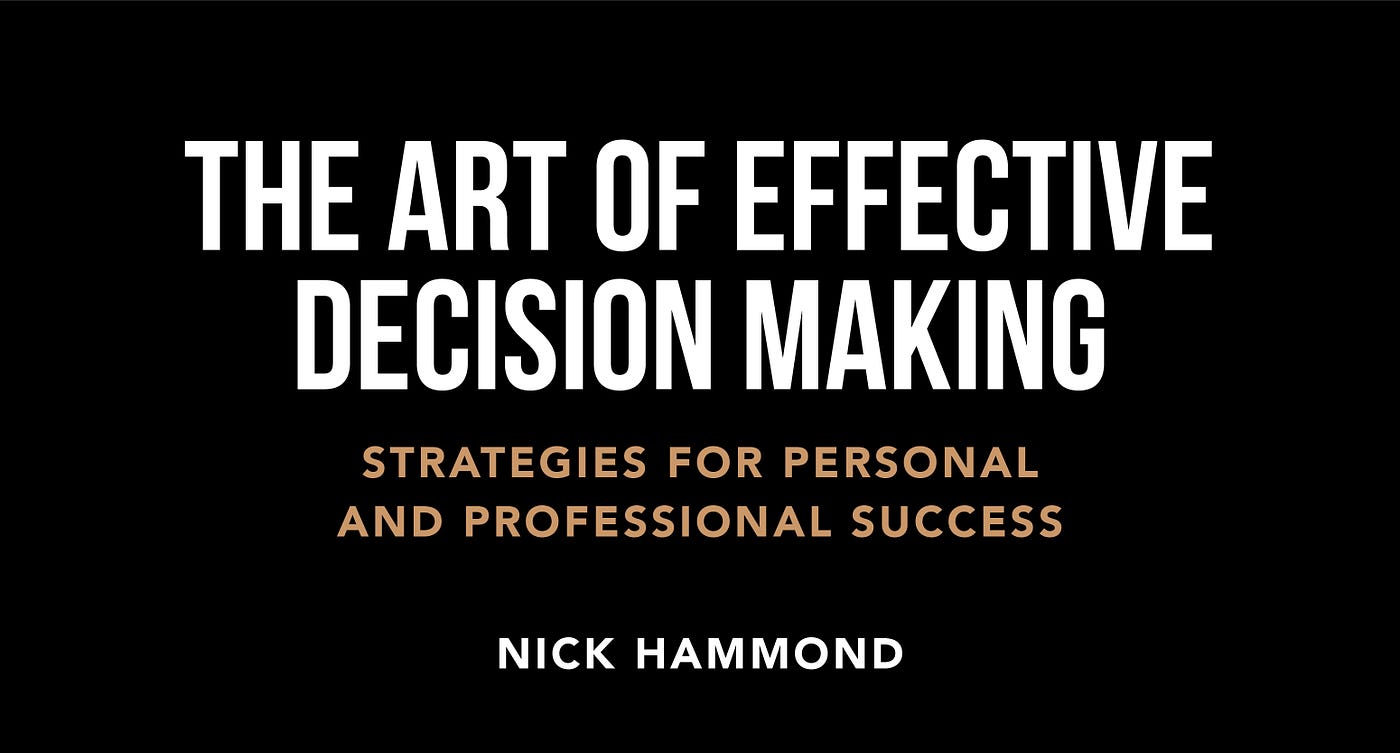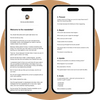Mastering the art of decision making can lead to greater success and fulfillment.

The ability to make effective decisions is a necessary skill.
Especially in our fast-paced and ever-changing world.
And mastering the art of decision making can lead to greater success and fulfillment.
Whether you’re working through important personal or professional decisions.
Incorporate these strategies to make more informed and confident decisions:
Define Your Goal
Before diving into the decision-making process, it’s essential ty define your goal.
What is the purpose of your decision?
What outcome are you trying to achieve?
By establishing a clear goal, you can align your thoughts and actions.
Take the time to reflect on your values, priorities, and long-term aspirations.
The clarity you gain will serve as a compass throughout the decision-making journey.
Gather Information
To make informed decisions, it is important to gather relevant information.
- Conduct research
- Seek advice from experts
- Consult reliable sources.
The more knowledge you gain about the subject at hand, the better equipped you will be to weigh the pros and cons.
Consider differing perspectives to gain a comprehensive understanding of the decision you face.
Weigh Risks and Benefits
Every decision carries its share of risks and benefits.
Take a systematic approach at weighing the factors involved.
Create a list of potential risks and consider their likelihood and potential impact.
Then, weigh the potential benefits against the risks.
This exercise will help you to:
- Gain a clearer picture of potential outcomes
-Make a more balanced decision
Use Decision-Making Tools
There are a couple decision-making tools that can assist you in the process:
- Decision matrix
- Pareto analysis
Creatine a matrix allows you to assess criteria with many alternatives.
While a Pareto analysis helps to identify the most significant contributing factors.
Experiment with different tools.
And find the ones that resonate with your decision-making style.
Consider Long-Term Consequences
When making decisions, it is crucial to consider the long-term consequences.
Ask yourself how your decision will impact not only the present moment but also your future.
Consider the potential ripple effects on your:
- Personal life
- Relationships
- Career
- Well-being
By taking a long-term perspective you can avoid impulsive choices.
And make decisions that align with your overarching goals.
Follow Your Intuition
Gathering information and evaluating risks are important.
But don’t ignore your intuition.
Our instincts often provide valuable insights.
Most of which may not be immediately clear through rational analysis alone.
Tune into your gut feelings and pay attention to your emotional responses.
Be mindful of the potential biases.
And seek to balance it with logical reasoning.
Evaluate Worst-Case Scenarios
To further enhance your decision-making process, consider the worst-case scenarios.
What are the potential downsides of each option?
Envisioning the worst outcomes.
And develop contingency plans for potential pitfalls.
This exercise will help you:
- Make more robust decisions
- Instill a sense of preparedness
Seek Feedback and Support
Don’t hesitate to seek feedback and support from trusted individuals.
Discuss your thoughts and concerns with:
- Friends
- Family members
- Mentors
- Colleagues
All can offer different perspectives.
And their insights and experiences can shed new light on your decision.
Helping you to see it from different angles.
Take Decisive Action
At some point, you must transition from analysis to action.
After careful consideration and reflection, make a decision and commit to it.
Avoid getting trapped in analysis paralysis, where endless contemplation hinders progress.
Even the best decisions may come with uncertainties.
But it’s your ability to adapt and course-correct that will drive success.
Learn from Your Decisions
The decision-making process is a learning experience.
Regardless of the outcome, take the opportunity to reflect on your decision.
What worked well?
What could have been done differently?
By analyzing your decisions, you can:
- Gain valuable insights
- Refine your decision-making skills over time
Embrace both successes and failures as opportunities for growth.
Failure as a Learning Opportunity
It’s important to acknowledge that not all decisions will yield the desired outcome.
Failure is a natural part of the decision-making process.
Embrace it as a valuable learning opportunity by:
- Analyzing what went wrong
- Identifying the factors that contributed to the unfavorable result
- Adjust your approach
Adopting a growth mindset can turn failures into stepping stones toward success.
Mindfulness and Reflection
It’s easy to rush through the decision-making process without taking time to reflect.
But incorporate mindfulness practices into your routine can cultivate a sense of clarity.
Before making important decisions:
- Take a moment to center yourself
- Observe your thoughts and emotions
- Tap into your intuition
Journaling can be a helpful tool for reflecting on past decisions.
And gaining insights into your personal decision-making patterns.
Prioritize and Simplify
Sometimes the sheer number of decisions we face can feel overwhelming.
To maintain focus and clarity:
- Rank your decisions based on their importance and urgency
- Separate the vital few from the trivial many
- Shift your time and energy accordingly
By minimizing distractions you can approach each choice with greater attention and intention.
Trust the Process
Decision making is never a linear journey.
It involves twists, turns, and unexpected challenges at each step.
Have confidence in your ability to navigate through uncertainty.
Embrace the discomfort that comes with making difficult decisions.
And approach it as an opportunity for personal and professional growth.
The more you trust the process (and yourself) the more resilient you’ll become.
Celebrate Success
It’s crucial to learn from failures.
But don’t forget to celebrate your success.
Acknowledge and appreciate the positive outcomes that result from your thoughtful choices.
Recognizing your achievements.
And take time to feel the boost to your confidence.
This will help to reinforces effective decision-making behaviors.
Continue to Practice
Effective decision making is an art.
And art that can blossom with regular practice and the right strategies.
The decision making process isn’t about being perfect.
But about making choices that align with your values and goals.
Embrace the process, stay adaptable, and trust yourself.

